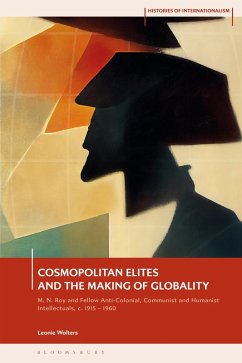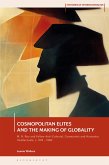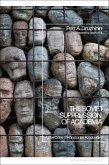As ideologies such as communism, fascism and various nationalisms vied for global domination during the first half of the 20th century, this book shows how a specific group of individuals - a cosmopolitan elite - became representatives of those ideologies the world over.
Centering on the Indian intellectual M.N Roy, Cosmopolitan Elites and the Making of Globality situates his life within various social circles that covered several ideological realms and continents. An example of an individual who represented ideologies such as anticolonial nationalism, communism and humanism, Roy is identified as unusual but by no means singular in this capacity, and shows how other elites were similarly able to represent ideologies that sought to make the world anew.
This book explores how Roy and his peers and competitors became a political elite as they cultivated a cosmopolitan reputation that meant they were taken seriously even when speaking of regions outside of their own. By considering the social and performative practices that turned them into credible, global, cosmopolitans, Wolters uncovers the exclusive basis on which the universal claims of world-changing ideologies were made.
Centering on the Indian intellectual M.N Roy, Cosmopolitan Elites and the Making of Globality situates his life within various social circles that covered several ideological realms and continents. An example of an individual who represented ideologies such as anticolonial nationalism, communism and humanism, Roy is identified as unusual but by no means singular in this capacity, and shows how other elites were similarly able to represent ideologies that sought to make the world anew.
This book explores how Roy and his peers and competitors became a political elite as they cultivated a cosmopolitan reputation that meant they were taken seriously even when speaking of regions outside of their own. By considering the social and performative practices that turned them into credible, global, cosmopolitans, Wolters uncovers the exclusive basis on which the universal claims of world-changing ideologies were made.









